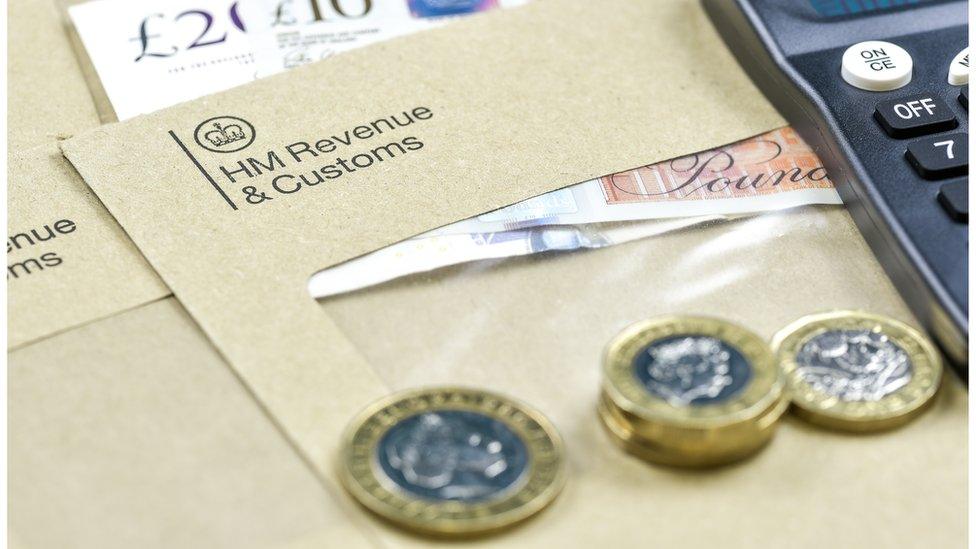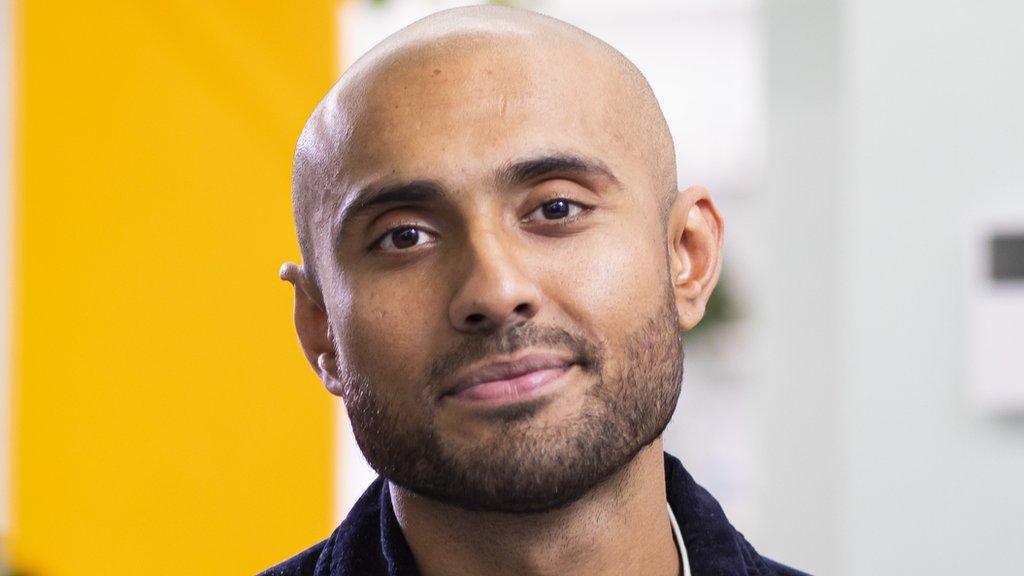HMRC drops decision to close self-assessment helpline
- Published
- comments

HM Revenue and Customs (HMRC) has reversed a decision to close its self-assessment telephone helpline for half of the year.
The tax authority announced on Tuesday that the line would be closed between April and September, with taxpayers directed to online services instead.
But less than a day later it said the phone line would stay open this summer.
"The pace of this change needs to match the public appetite for managing their tax affairs online," its boss said.
HMRC chief executive Jim Harra said: "We've listened to the feedback and we're halting the helpline changes as we recognise more needs to be done to ensure all taxpayers' needs are met, whilst also encouraging them to transition to online services."
The tax authority has been toiling with long telephone helpline waiting times and intense criticism of its services. But its announcement that it would close the helpline was immediately met with widespread criticism from tax professionals and MPs.
More than 12 million people are required to complete self-assessment forms every year, with many hundreds of thousands ringing for assistance.
HMRC had also planned to only open the VAT helpline for five business days every month ahead of the deadline for filing VAT returns, and refuse calls about refunds to the PAYE helpline.
However, it has now said those changes will be stopped too, prompting relief from an influential committee of MPs, who said that "common sense has prevailed".
"We welcome the decision to reverse yesterday's ill-advised announcement," the Treasury Committee said. "While we do not oppose expansion of digital services for those who want to use them, we remain entirely unconvinced that HMRC is adequately prepared to impose such a significant change in how it serves taxpayers.
"Planned changes to the operation of HMRC's phone lines have been mismanaged from the beginning. Questions still remain over the extent to which the department are prioritising its own needs over those of law-abiding and vulnerable taxpayers."

In the Commons, shadow Treasury minister James Murray described the move as a "u-turn of extraordinary speed and indignity".
Following reports that Chancellor Jeremy Hunt stepped in to urge HMRC to reverse its decision, the financial secretary to the Treasury, Nigel Huddleston, said HMRC was a non-ministerial department but that ministers set strategy and worked closely with it on operations and communications.
Professionals have welcomed the change of policy.
Tina McKenzie, from the Federation of Small Businesses, said: "While online services are a key part of the communications mix for the tax authority, sometimes there's just no substitute for a real human on the end of a phone line who can listen, engage, and help untangle issues."
Gary Ashford, from the Chartered Institute of Taxation, said that while many people wanted to use HMRC's online services, the system was not yet functioning well enough.
Waiting times
MPs on the Public Accounts Committee last month said customer service at HMRC was at an all-time low with nearly two-thirds of taxpayers forced to wait more than 10 minutes to speak to an adviser.
The average wait for a call to HMRC to be answered was 16 minutes and 24 seconds in the year to April 2023, according to the committee's report. That compares with 12 minutes and 22 seconds the previous year.
Some 63% of callers waited more than 10 minutes to speak to an adviser, up from 46% in 2021-22. The committee said this proportion had increased every year since 2018-19.
It said more people were being drawn into paying tax, known as fiscal drag, and their tax affairs were becoming more complicated. As a result HMRC's customer service was "struggling to cope" and taxpayers were left "exasperated" by the quality of support.
Related topics
- Published19 March 2024

- Published28 February 2024

- Published11 March 2024

- Published22 January 2024
